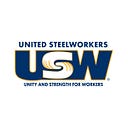Rebuilding the Middle Class
By Tom Conway
USW International President
With business already strong and a national infrastructure program likely to further increase demand for its products, DuPont realized it needed a strategy to find more workers.
So it did what any sensible employer would do — turned to the union for help. DuPont approached United Steelworkers (USW) Local 12075 about the possibility of a worker recruitment campaign highlighting the availability of union jobs, which provide the benefits, security and dignity more and more Americans seek in the wake of COVID-19.
Major investments in America’s infrastructure will modernize the nation and revitalize its industrial base. But an infrastructure program is about more than rebuilding roads and bridges. It’s about creating more of those family-sustaining union jobs and rebuilding the middle class.
It’s about creating an economy that’s not only more powerful but more just.
In August, the Senate took the critical first step by passing a $1 trillion infrastructure bill that would pave the way for long-overdue improvements in roads, water systems, school buildings, airports, communications networks, energy systems and manufacturing facilities.
Now, the House needs to pass its own version of the legislation and set the nation on a path to shared prosperity.
“We are waiting for them to finish up, so we can move on,” said Local 12075 President Kent Holsing, noting he represents hundreds of workers at DuPont, Dow and other chemical companies in the Midland, Mich., area who are ready to handle the added business that an infrastructure program would generate.
“We make lots of products that are used in building construction,” Holsing explained. “We make products that go into water-treatment plants. We make a number of products that go into cars. Investment in infrastructure is an investment in products, and investment in products is an investment in jobs.”
But DuPont needs more workers to take on those jobs. Holsing said that when company representatives asked which USW benefits it ought to highlight in recruitment efforts, he and his colleagues told them “everything from worker representation to the college scholarship program.”
The pandemic underscored the withered state of America’s manufacturing base and marked a turning point for Americans fed up with the low-wage, nonunion jobs that proliferated amid industrial decline.
No longer willing to endure the exploitation that COVID-19 threw into sharp relief, millions of workers left employers that not only exposed them to the virus but denied them the affordable health care, paid sick leave and other basics they needed to help their families through the crisis.
“A lot of them don’t have anything to lose,” Lorri Walker, president of USW Local 444L, said of Americans who ditched exploitative employers. “They can’t afford to buy a house. They can’t afford to buy a car.”
“People have to have a pathway for a future so they can retire,” explained Walker, who represents hundreds of workers at Henniges Automotive in Keokuk, Iowa. “They have to have decent wages, and they have to have a voice in the workplace. It’s not going to happen without a union.”
During the pandemic, unions fought for COVID-19 protections. They succeeded in preserving members’ jobs, even as nonunion employers cut many more workers loose during the crisis. And because of contracts negotiated before COVID-19, union workers had greater access to health insurance and paid sick leave to help care for their families when the virus struck.
Now, a growing number of Americans want union jobs. “I think they understand the value of labor,” said Walker, noting how eagerly new hires at Henniges Automotive, a manufacturer of weather stripping products, join the USW.
A national infrastructure program is essential for creating more of the opportunities Americans now demand.
Infrastructure investments have the potential to generate quality jobs for the workers at mines, steel mills and aluminum plants who furnish the raw materials for infrastructure projects. These projects also would create work for heavy equipment manufacturers, glassmakers and producers of tires, optical fiber and numerous other products all along supply chains.
At Holophane in Newark, Ohio, for example, workers anticipate increased demand for their lighting products, which government agencies and other customers purchase for interstate highways, city streets, parks, ports, power plants and other settings.
And USW Local 525T President Steve Bishoff said the union and Holophane recently wrapped up a contract that will help recruit and retain the workers the company knows it needs to capitalize on coming opportunities.
The new agreement included improvements in the wage scale and preserved affordable health care, among other enhancements. The company, Bishoff added, “didn’t try to take anything away.”
“These are good jobs,” he said, noting workers at other local employers vie for openings at Holophane because of the higher wages and other benefits.
America has a historic opportunity not just to emerge from the pandemic stronger than before but to galvanize a tide of prosperity that will benefit generations to come.
It all starts with the infrastructure bill. Millions of Americans eager for better lives expect Congress to push it over the finish line.
“In my 22 years working for the union, I have not seen a labor marketplace like this ever,” Holsing said, referring to the large number of workers fighting back against unfair treatment and demanding more from employers. “This is something we’re going to really need to capitalize on.”
